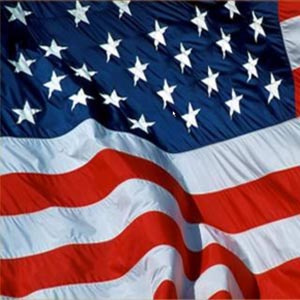The American Game

From two aspects, United States’ request from UAE officials to decrease the trade volume with Iran and set further limitations on bilateral cooperation was completely predictable.
Firstly, after disputes over Iran’s nuclear project escalated and United States invaded Afghanistan and then Iraq and especially with the rise of Mr. Ahmadinejhad to presidency, United States’ strategic approach towards Iran has become much stricter than before.
Beforehand, America followed the policy of exerting economical and diplomatic pressure on Iran through economical embargo and diplomatic moves around the world to isolate Iran. But with the escalation of tensions between two sides and Iran’s speeding up its nuclear enrichment plans, the policy has shifted or at least accelerated towards imposing “strategic blockade”. This blockade takes place in three completely separate, but ultimately linked fields.
The first field is military besiegement of Iran. A glance at Iran’s waterborne and land borders shows since 5 years ago, the military cordon has become tighter and tighter and nowadays except for Turkmenistan, in all other neighboring countries including those in the Persian Gulf and Gulf of Oman, United States’ military forces are active, aimed to encircle and militarily monitor Iran.
Despite the long history of former Soviet Union’s military presence and Russia’s new strategic attempts to revive its military power and function around the world, it seems that Kremlin officials haven’t attempted to break up the military monopoly of United States in the Persian Gulf and this Gulf is still recognized as an American lake.
The second field is diplomatic blockade of Iran all around the world. Unfortunately Washington’s ceaseless efforts have resulted more than expected in some cases and US has managed to tighten the diplomatic cordon increasingly.
Approval of successive anti-Iranian resolutions in IAEA with the assent of powers such as India and small countries like Ghana that have occasionally enjoyed Iran’s financial and political support, approval of two sanction resolutions in UN’s Security Council with the assent of Russia and China and finally Moscow’s last year withdrawal from the circle of Tehran’s strategic supporters, are all signs of United States’ relative success in diplomatic blockade in the last 2 years. What was our own role in tightening this cordon through our activities and our rhetoric is another matter which should be dealt with thoroughly.
The third and last field which we are going to talk about particularly is the economical blockade of Iran in all fields and anywhere possible throughout the world. Unlike political pressures, economical sanction has been the most sustained of U.S’s policies against Islamic Republic of Iran in more that two decades.
What happened recently, was evident pressure of Washington on Iran’s financial and commercial partners on one hand and on the other, focusing on new sanctions in more important fields such as international financial institutions and credible banks on the other hand which has intensified since last year and even reflected in sanctions set by Security Council on Saderat Bank and Sepah Bank.
After China with 18 to 20 billion dollars exchange with Iran in 2007, UAE is Iran’s second financial partner with 15 billion dollars of exchange per year.
Therefore, even without considering other parameters, urging a small country such as UAE, that is totally dependent in diplomacy, to limit its trade with Iran can be as effective as China’s unlikely sanction of Iran in the economical embargo.
From financial and quantitative aspect, its effect will be even more than the embargo on trade with Germany, Italy, Japan and France etc. Actually the financial weight of Tehran-Abu Dhabi ties is much more than its political weight and that turns the tie into a favorable opportunity for Washington that’s impatiently seeking any possible way to obstruct Iran’s economy. Putting pressure on UAE is as effective as the unlikely attempt to convince Beijing for an economic blockade Iran.
But this is not the only reason for United States’ focus on UAE. Unfortunately, despite the trade volume there are other issues that make the mercantile ties between Iran and UAE “special” and sensitive.
Of these issues is the international financial activity of many small and large-scale Iranian enterprises that due to the inconvenient situation inside Iran have moved to UAE and especially the Dubai emirate. Most of these enterprises have opened several bureaus in Dubai that play an important role in providing the financial requirements and supporting their foreign trade.
Naturally this is not unknown for Washington strategists. Additionally, UAE and particularly the emirate of Dubai have gained more importance for Iran since they act as a quay and brokering site for most of the commodity and service demanded by Iran. In fact, all the 10 billion dollars of commodity that enter Iran from Dubai annually are manufactured in other countries. Also it seems that Dubai’s brokering has an important role in providing Iran’s technological needs. Also something that is not overlooked by Americans.
With all these functions it’s natural that United States attempts to stranglehold the important but quite accessible technological and financial portal of UAE as much as possible.
What has caused this situation and paved the way for United States moves is recklessness of the Iranian side and lack of a harmony between Iran’s “aggressive diplomacy” and “peace economy”.
Since 2003 and the escalation of international disputes, Iran’s economy has become increasingly dependent on import and oil revenue. In fact it has been Iran who has showed the way to its number one enemy.

